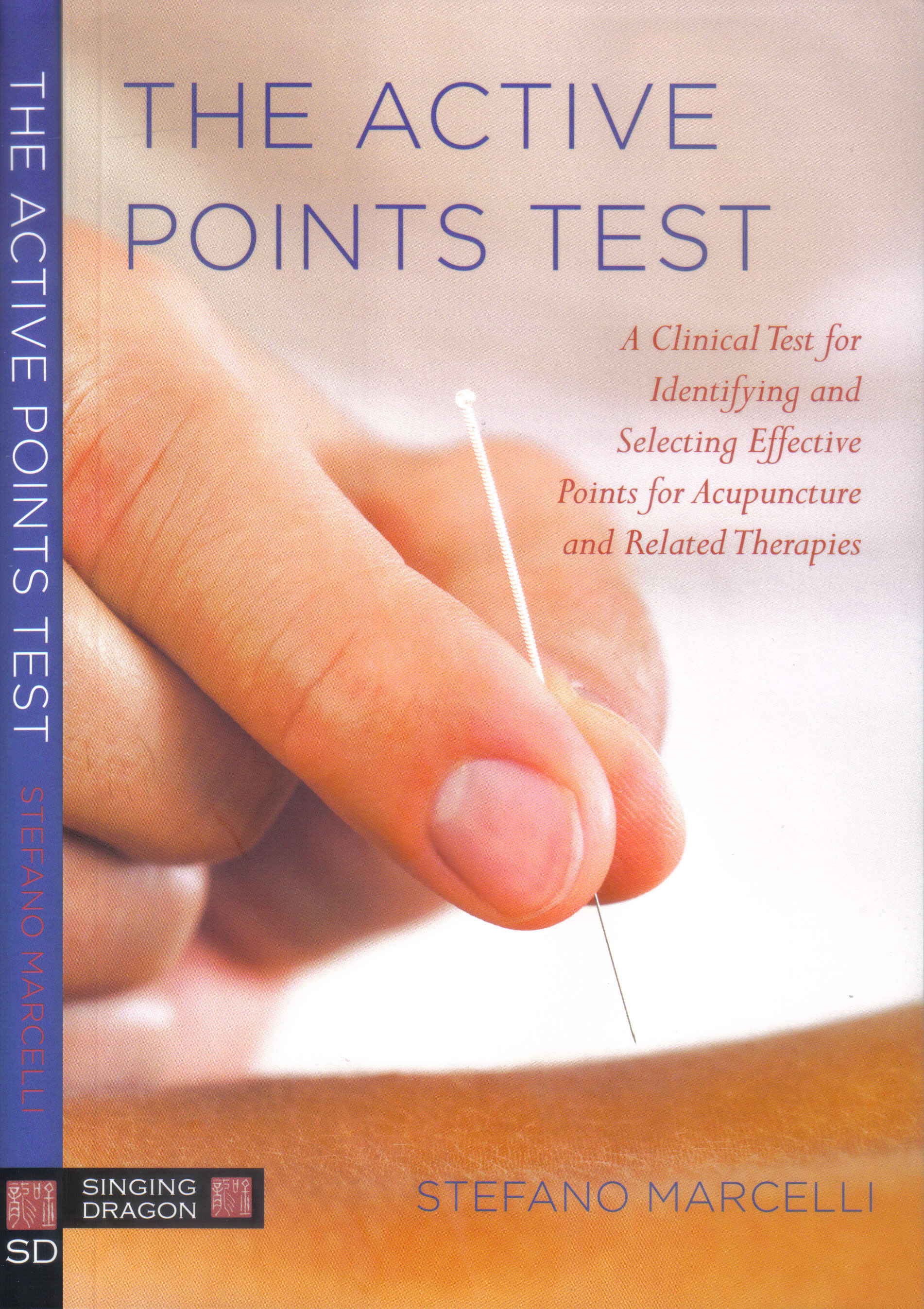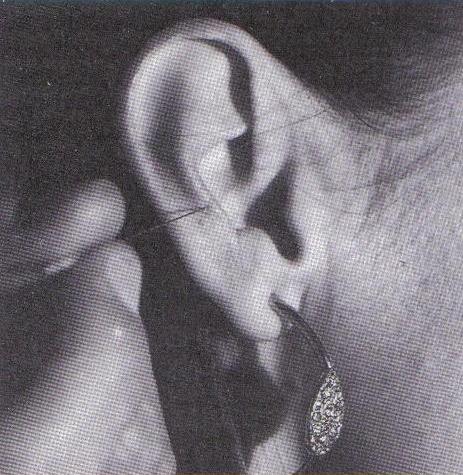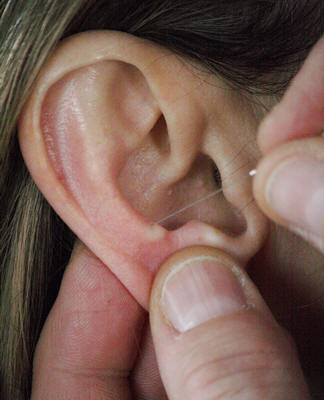|
NEEDLE CONTACT TEST
© 1995-2017 Stefano Marcelli
|
|||
|
THE ACTIVE
POINTS TEST |
|||
|
|
|||
|
Needle Contact Test performed in the first '90s on an ear acupuncture point to know whether it is really effective or not to cure a dorsalgia. |
|||
|
|
|||
|
Needle Contact
Test performed today on an ear acupuncture point. |
|||
|
The Needle Contact Test (NCT) is the needle version of The Active Points Test, a diagnostic technique invented in '90s by Stefano Marcelli, MD and the pioneer who first applied the scientific method to research in acupuncture: www.geneticacupuncture.com. The Needle Contact test is useful to identify, via the contact of the needle on the skin of the ear and other areas of the body, the most efficacious points for reducing pain during a migraine attack and any other kind of pains. Marcelli published his diagnostic technique in 1995 for the first time in the book "Il Test dei Punti Attivi" by Libreria Cortina Torino, Turin Italy, improved, refined and printed as a new edition in 2010 "Il Test dei Punti Attivi" by Hoepli Editore in Milan, Italy. The pictures in this page come from the cited books. |
|||
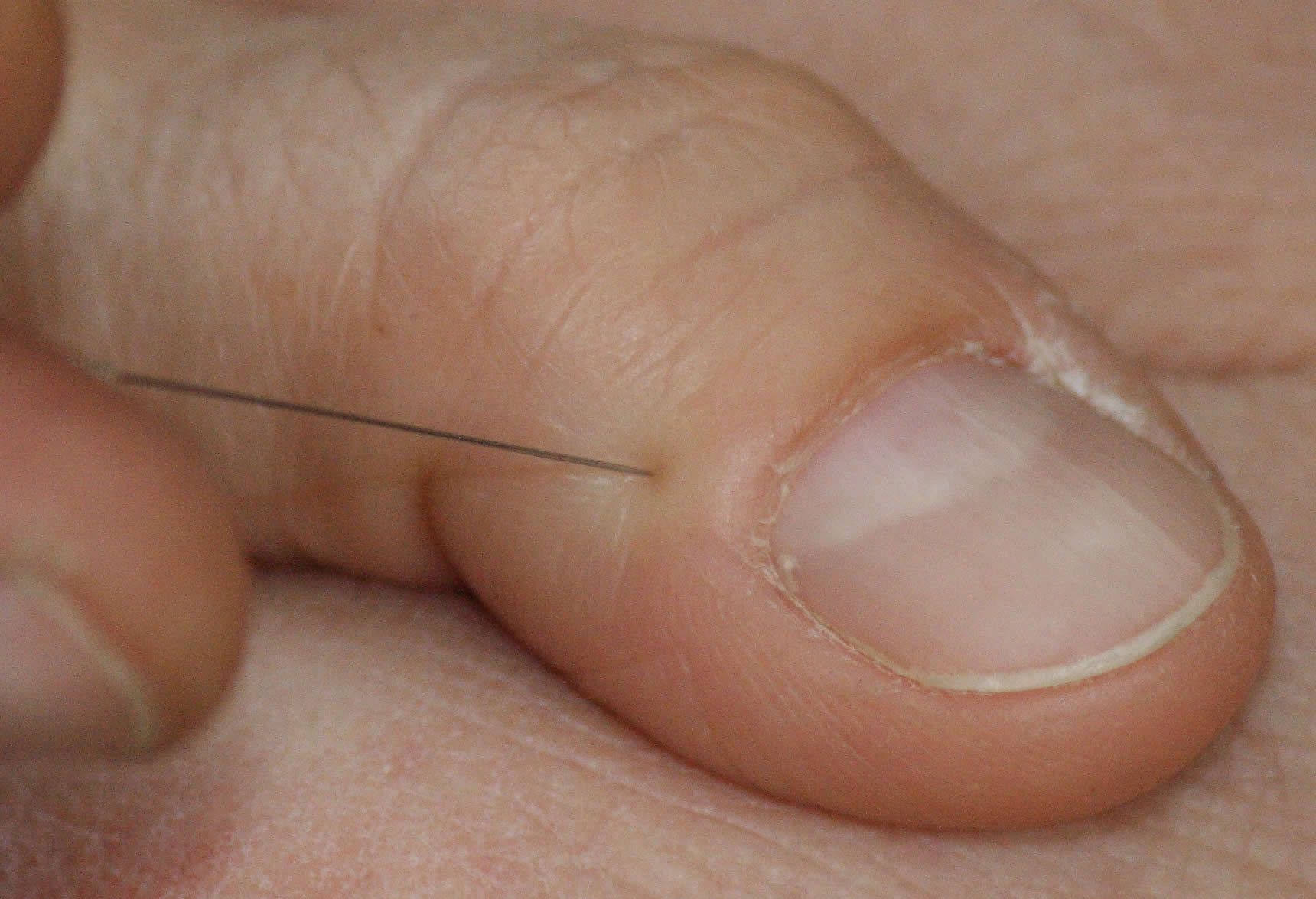 |
|||
|
Needle Contact Test performed on a jing-point of acupuncture (LU-1 Shaoshang) to deal with a shoulder pain. |
|||
 |
|||
|
Needle Contact Test performed on the acupuncture point CV-24 Chengjian, to deal with an acute stiff neck. While the needle is touching the skin, patient is asked to refer whether his symptom improves or not. |
|||
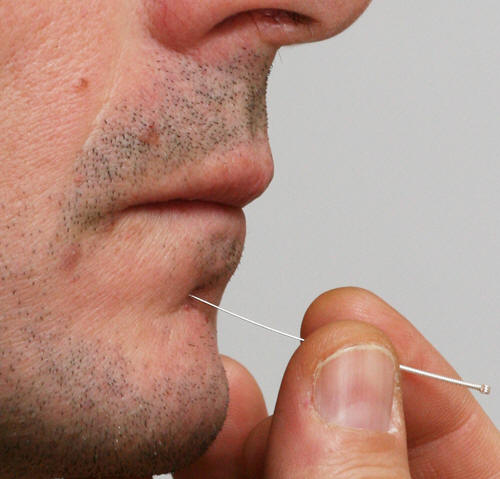 |
|||
|
Same case as above, lateral view. |
|||
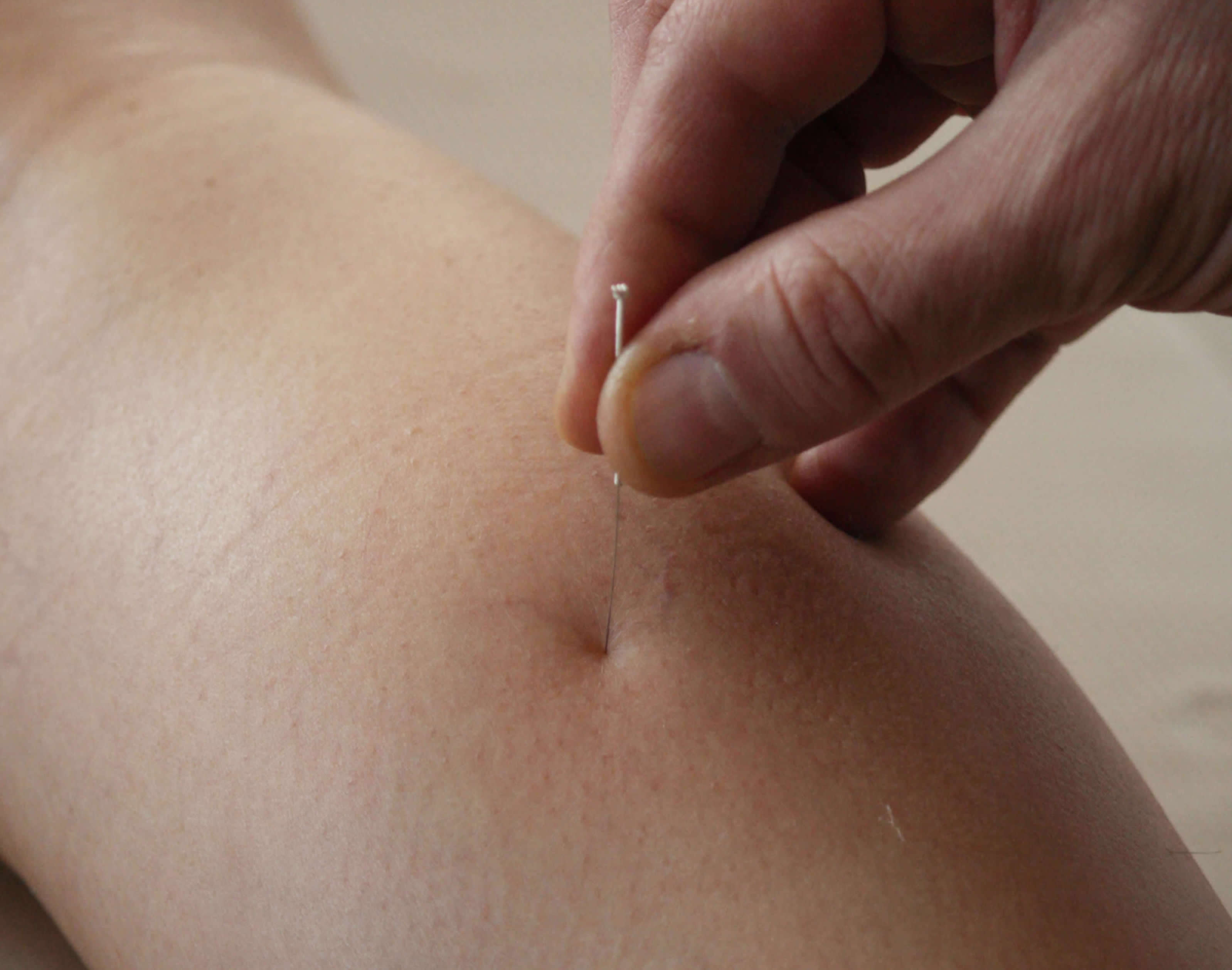 |
|||
| Needle Contact Test performed on the calf, at the acupuncture point BL-57 Chengshan, to value its effectiveness in a sciatica. | |||
 |
|||
| Same picture above: detail of the dimple provoked by the needle tip. | |||
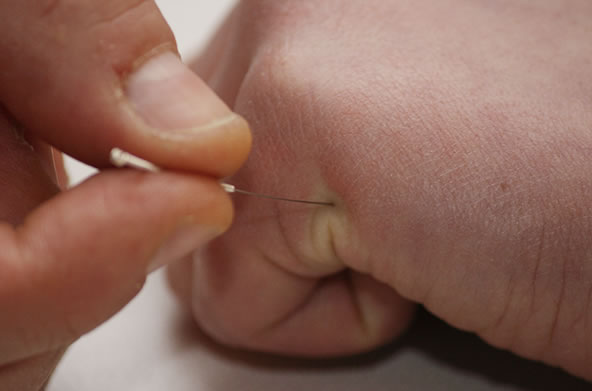 |
|||
| Needle Contact Test performed on the acupuncture point SI-3 Houxi to know whether it is active to treat a back-pain or not. | |||
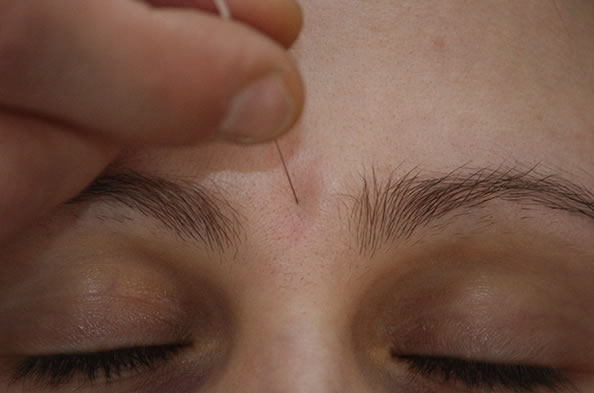 |
|||
| Needle Contact Test performed on the acupuncture extra point EX-1 Yintang to know whether it is active to treat sinusitis pain or not. | |||
|
Allais G et al. – The Needle Contact Test (NCT) is a diagnostic technique invented in 1995 by Stefano Marcelli, an Italian MD and acupuncture researcher www.geneticacupuncture.com. It is useful to identify through the contact of the needle on the skin of the ear and other parts of the skin, the most efficacious points for reducing pain during a migraine attack or other kind of pains. The aim of this study was to identify the most important auricular zones for pain control by applying the NCT in a group of 15 women during a unilateral attack of migraine without aura. The authors also assessed how effective the insertion of a semi–permanent needle in these zones was in reducing the migraine pain during the next 24 h. The most effective tender points in pain control were located on the antero–internal part of the antitragus, the anterior part of the lobe and the upper auricular concha ipsilateral to the side of pain. The insertion of a semi–permanent needle in these zones allowed stable control of the migraine pain, which occurred within 30 min and persisted at the same levels 24 h later. |
|||
|
Do not forget to visit:
Go to the App of Acupuncture Daily Qi Circuit of 20 meridians and 361 points:
|
|||


